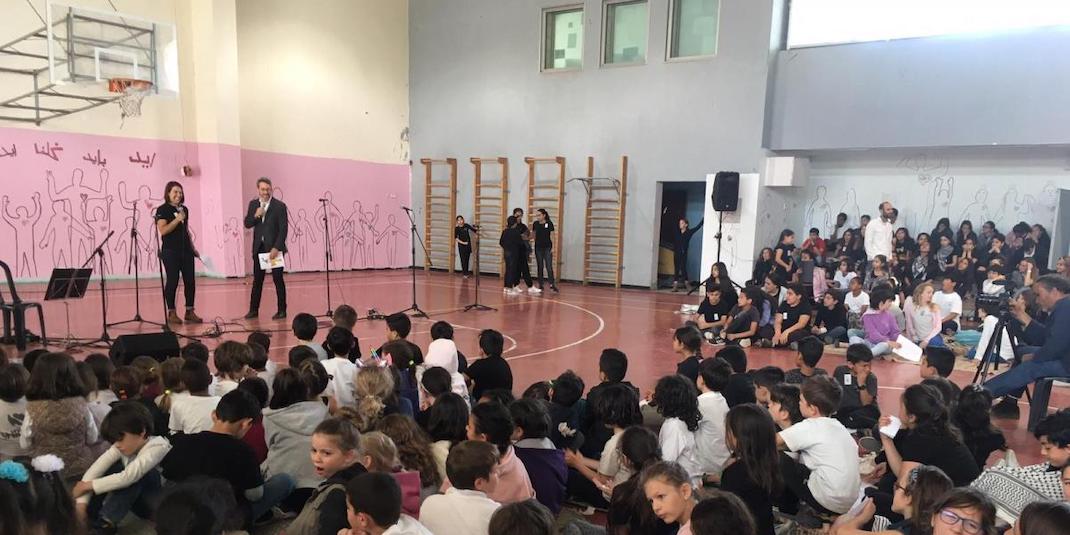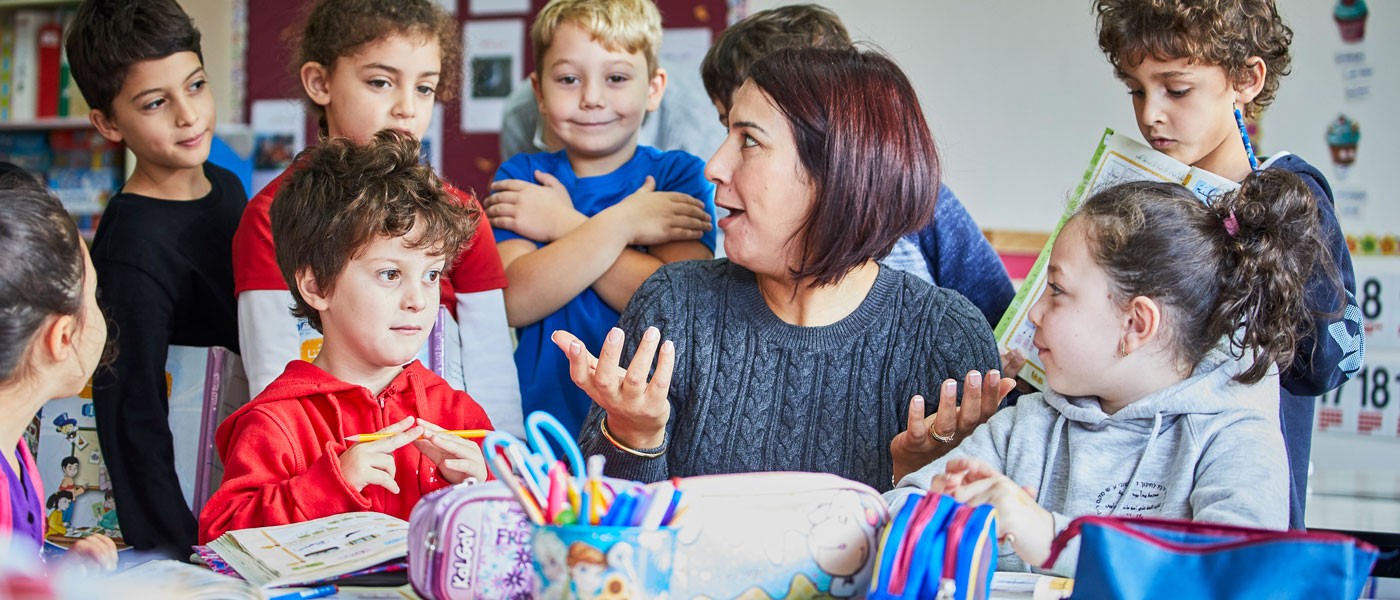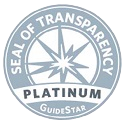Memorial Day 2019 : A co-teacher conversation

What is it like on Memorial Day in Israel at mixed Jewish-Arab school?
Students, teachers and parents at all of our Hand in Hand schools to mark Memorial Day. As usual, our memorial was different than in other schools. In Jerusalem, two co-teachers, Haim and Sirin, stood together at the front of the hall and had an open conversation – in Hebrew and Arabic – about the pain of the day and the hope that they found as teachers and partners at Hand in Hand.
Haim: Hi, Good morning Sirin, tell me a little bit about yourself.
Sirin: My name is Sirin Janah from the neighborhood of Beit Tzafafa, a mother of three children, and a teacher at Hand in Hand for the last 14 years. And what about you?
Haim: My name is Haim Mayer, I was born in a town next to Beer Sheva in an Ultra-Orthodox family with 13 children. My grandparents from both sides were Holocaust survivors. In the world where I grew up, there were many divisions, between boys and girls, between more or less religious people, and divisions between Jews, Christians, and Muslims. Our ideas about the people on the other side of the division were not always positive. When I grew up, I discovered that on the other side of those divisions, there were human beings. Some of them are good and amazing people, and some less so, exactly like in my community.
What did your world look like growing up?

Sirin: I grew up knowing the other. Even though I grew up in an all Arab school, my father, Ali Othman, was a player on the Hapoel Jerusalem Basketball team, so we spoke Hebrew more than other families. We also knew and were familiar with all of the events and holiday of my fathers friends, many of whom were Jewish. And even with that, I was always was afraid of the other, who I felt didn’t know me.
Haim: Sirin, you have been working here for a long time, why is it important for you to stay and teach in this school?
Sirin: I have deep feelings in my heart for this place, feelings of love and belonging, like it’s my second home. Even in my home, life is not simple. There are moments of beauty and hard moments too. Just like shared living with our two peoples. Life here isn’t easy either. There are many challenging moments. But when I see you my precious students, young and old, and see that you are adamant to bring change and to complete this path, that’s when I understand that this is the only way to live in safety in this place. And that is what gives me more faith to continue.
And you, Haim?
Haim: Sirin, I started working here a year ago and I found an amazing place where everyone feels at home. I know now that we can build a shared life based on respect, accepting the other and love for all human beings. I have amazing partners who help me learn about life as a teacher, and open doors to the special kind of optimism that we are creating here at school.
Sirin: Haim, I stand next to you, today specifically, even with all of the challenges, because in our work and in the dialogue between us, and the acceptance we have for one another, we will get to the place of safety where we both want to live. And this is the hope, that we will continue on this path of cooperation, even with our differences.
Haim: In the Mishna, it gives a list of four kinds of people:
Those who say: what’s mine is mine and what’s yours is yours, is of average character
Those who say: ‘What’s mine is yours and what’s yours is mine’ is unlearned
Those who say: ‘What’s yours is mine and what’s mine is mine’ is wicked.
Those who say: ‘What’s mine is yours and what’s yours is yours’ is pious.
We might not want to get to the level of the pious who gives up everything, but the Hand in Hand school teaches us a new and amazing way of working together, namely: what is mine and what is yours, is ours together.
Sirin: You’re right, Haim. Sometimes there can be a lot disagreements between us and in our special school, but we make space for cooperation and sharing, so that we and our students can succeed in building a shared life together.









